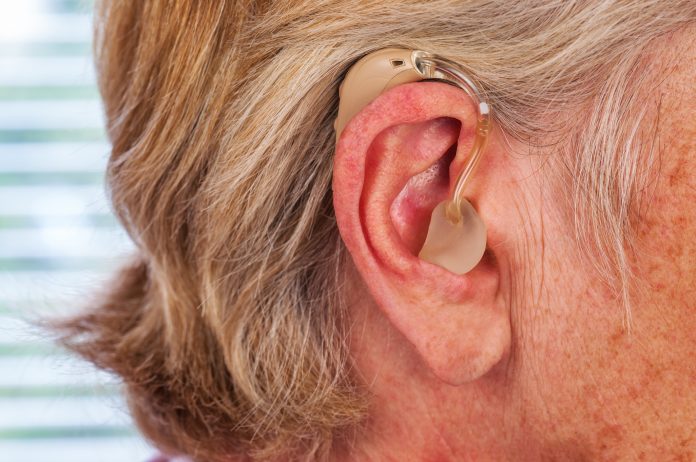If we address hearing loss, can we really decrease our risk of developing dementia? Mark Atkinson, Chief Executive Action of Hearing Loss investigates
Recent global research suggests that hearing loss and dementia are linked. Having mild hearing loss is thought to double your risk of developing dementia and the level increases the more severe your hearing loss. So the risk is three times as great if you have moderate levels of hearing loss and five times as great if you have severe hearing loss.
Hearing loss is, therefore, one of the biggest risk factors for developing dementia but it is, potentially, modifiable – we might be able to decrease our risk of developing dementia by addressing our hearing loss. Research suggests that using hearing aids may reduce our likelihood of developing dementia. But we don’t have definitive proof – more research is needed.
Similar symptoms
The signs and symptoms of hearing loss and dementia are often similar – not responding when asked a question (or answering inappropriately), or struggling to understand sounds, including speech.
As a result, hearing loss is often misdiagnosed as dementia: people can receive inappropriate treatment for a condition they don’t have, while their hearing loss goes unaddressed.
When someone does have dementia, unaddressed hearing loss can make it more difficult for them to cope – and may exacerbate dementia-related behaviours, such as aggression and anxiety.
Other evidence suggests that hearing loss is associated with a decline in memory skills, probably as the effort required from the brain to make sense of sounds is much greater. With hearing loss, the information about sounds that the brain receives from the ear is degraded – it may be muffled, or blurred and sounds at some pitches may not reach the brain at all, so it has to work harder to figure out what it’s hearing.
The additional ‘listening effort’ reduces the resources that the brain has to do all the other things it needs to do and may accelerate or exacerbate cognitive decline. Cognitive decline is one of the hallmarks of dementia (but it’s worth remembering that you can have cognitive decline without necessarily developing dementia).
That’s why more research is needed to clarify whether proper diagnosis and management of hearing loss, including providing hearing aids, may reduce the risk and impact of developing dementia.
Need to know
But, although there are clear signs of a link between the two conditions, we don’t really understand what that link is. We need research to tell us:
- Does hearing loss cause dementia? Or are both hearing loss and dementia caused by a different underlying factor, such as ageing? Could it be that they are actually completely unrelated and the increase in risk for dementia seen in people with hearing loss is simply coincidental (unlikely, but possible)?
- What is the actual link between hearing loss and dementia? What are the biological or cognitive processes that underlie these two conditions that could cause them to be linked?
- Can treating hearing loss, for example, with hearing aids, reduce someone’s likelihood of developing dementia, how fast it develops, or how badly it affects someone?
- Can we improve diagnostic tests for dementia and hearing loss, so that people aren’t misdiagnosed?
- If there is a clear link between hearing loss and dementia, can we develop treatments to tackle both conditions?
To meet this challenge, we’re working with Alzheimer’s Research UK to co-fund research projects that will increase our understanding of the biological and cognitive processes underlying hearing loss and dementia.
This year, in our International Project Grant scheme, we’re asking researchers from around the world, who work in either hearing or dementia research, to send us applications for projects that aim to answer the questions above and help to uncover the link between hearing loss and dementia.
Hopefully, the research we fund will help to answer some of these burning questions and bring us closer to ways to effectively confront the challenges we face in the future from the increasing global incidence of these conditions.
Mark Atkinson
Chief Executive
Action on Hearing Loss
Tel: +44 (0)808 808 0123
information@hearingloss.org.uk











